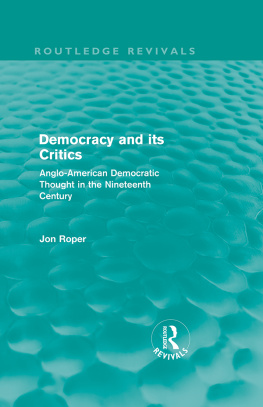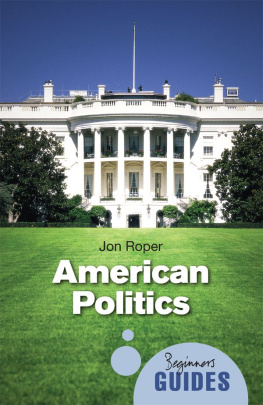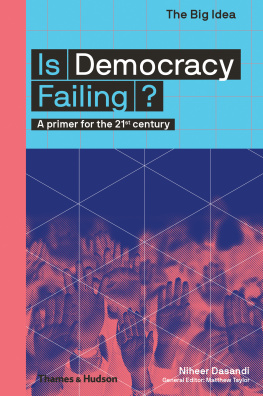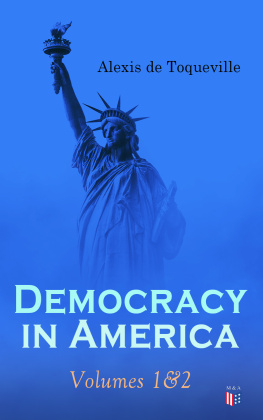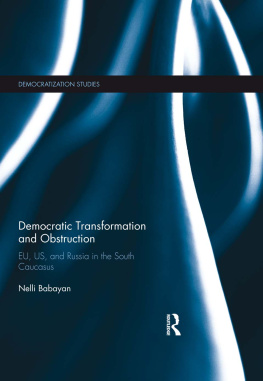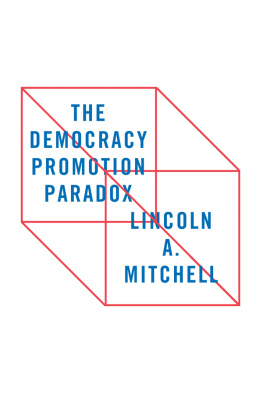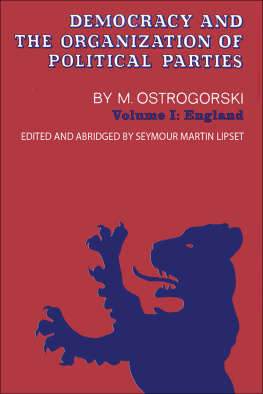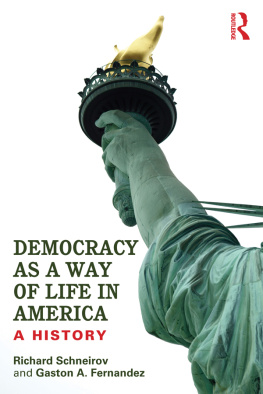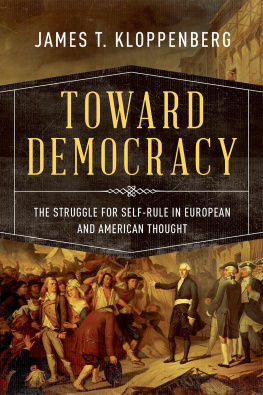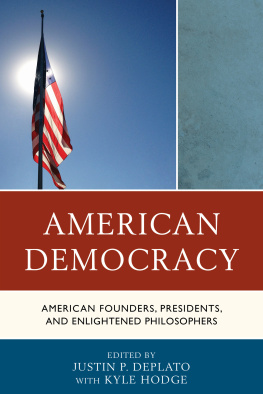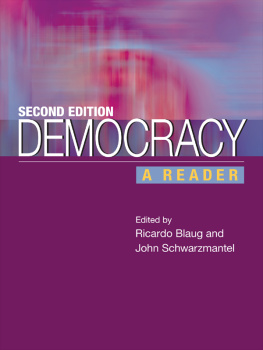Routledge Revivals
Democracy and its Critics
Originally published in 1989, this is a guide for students coming for the first time to the study of democracy, who often find it difficult to trace the development of the idea and to place it in historical context. In this accessible and informative text, Jon Roper introduces the reader to arguments for and against criticisms of the concept of democracy. He does so by examination of the statements and writings of major nineteenth-century politicians and philosophers, in the United States and the United Kingdom.
Democracy and its Critics
Anglo-American Democratic Thought in the Nineteenth Century
Jon Roper
First published in 1989
by Unwin Hyman
This edition first published in 2011 by Routledge
2 Park Square, Milton Park, Abingdon, Oxon, OX14 4RN
Simultaneously published in the USA and Canada
by Routledge
270 Madison Avenue, New York, NY 10016
Routledge is an imprint of the Taylor & Francis Group, an informa business
J. Roper, 1989
All rights reserved. No part of this book may be reprinted or reproduced or utilised in any form or by any electronic, mechanical, or other means, now known or hereafter invented, including photocopying and recording, or in any information storage or retrieval system, without permission in writing from the publishers.
Publishers Note
The publisher has gone to great lengths to ensure the quality of this reprint but points out that some imperfections in the original copies may be apparent.
Disclaimer
The publisher has made every effort to trace copyright holders and welcomes correspondence from those they have been unable to contact.
A Library of Congress record exists under LC Control Number: 88017659
ISBN 13: 978-0-415-60886-2 (hbk)
DEMOCRACY AND ITS CRITICS
Anglo-American democratic thought in the nineteenth century
JON ROPER
University of Wales, Swansea
London
UNWIN HYMAN
Boston Sydney Wellington
J. Roper, 1989
This book is copyright under the Berne Convention. No reproduction without permission. All rights reserved.
Published by the Academic Division of
Unwin Hyman Ltd,
15/17 Broadwick Street, London W1V 3FP, UK
Unwin Hyman, Inc.,
8 Winchester Place, Winchester, Mass. 01890, USA
Allen & Unwin (Australia) Ltd,
8 Napier Street, North Sydney, NSW 2060, Australia
Allen & Unwin (New Zealand) Ltd in association with the Port Nicholson Press Ltd,
60 Cambridge Terrace, Wellington, New Zealand
First published in 1989
British Library Cataloguing in Publication Data
Roper, Jon
Democracy and its critics : AngloAmerican
democratic thought in the nineteenth century
1. Democracy. Theories 17501900
I. Title
321.801
ISBN 0-04-445129-6
ISBN 0-04-445130-X
Library of Congress CataloginginPublication Data
Roper, Jon.
Democracy and its critics: Anglo-American democratic thought in the nincteeth century/Jon Roper.
p. cm.
Bibliography: p.
Includes index.
ISBN 0-04-445129-6. ISBN 0-04-445130-X (pbk.)
1. DemocracyHistory19th century. 2. Politcal scienceGreat BritainHistory19th century. 3. Political scienceUnited StatesHistory19th. I. Title
JC421.R627 1988
321.809dc19
88-17659
CIP
Typeset in 10/11pt Imprint and printed in Great Britain by Billing and Sons, London and Worcester.
Contents
Acknowledgements
I would like to thank Jack Greenleaf, Professor Emeritus of Political Theory and Government at the University of Wales, Swansea, for encouraging me to write this book, and for his subsequent faith in its progress. Professor Tom Ungs and colleagues in the department of Political Science at the University of Tennessee, Knoxville, invited me to join them for a term as visiting associate professor, and in that friendly and congenial environment I was able to complete the manuscript.
Gordon Smith, my editor at Unwin Hyman, has been a pleasure to work with, and I am grateful for the time and consideration he has put into the production of the text.
Sharon Hansard, in the American Studies Centre at Swansea, bore the brunt of the typing at least until I came to terms with word-processing! My thanks also go to my elder brother, Tim, who has long understood the possibilities of new technology. His computing skills made the compilation of the index less haphazard than it otherwise might have been.
I owe a debt to all those who have helped along the way, and in particular to Nicola, who put up with both my absence and my presence while the book was written.
Jon Roper | American Studies |
University of Wales, Swansea

Consider democracy. In America it became part of that revolution in the principles and practice of governments (Paine, 1969, pt. 2, p. 181), which accompanied and transcended the successful struggle for colonial independence. In Britain it implied a new set of political relationships within the old institutional order. Democracy in both countries, however, was not only a political concern. Nineteenth-century philosophical discourse also explored the moral, cultural and economic implications of this novel ideal. Sometimes democracy needed such theoretical justifications as the drunk needs the lamp-post, more for support than for illumination. However, the century recreated in itself a new spirit of the age. A democratic tradition in America and in Britain was part of this invention.
The aim of this book is to investigate different aspects of this tradition in each country against the background of primarily nineteenth-century historical experience, and to do this through a consideration of the attitudes of contemporary commentators on and critics of democracy. It is a wide-ranging debate. The cast list of those who wrote and spoke is long: some famous, others less notorious. The views presented here are an eclectic rather than an idiosyncratic choice. Nor should they be overlooked in an age often concerned more with the empirical than the metaphysical. It has been tempting to distil the ingredients of the ideal as time has gone by, with the result that democracy is defined as a procedural mechanism, a process, a form of government, a way of doing things. There remains more to it than that.
This chapter lays the foundation of a broader view. It connects the idea of democracy in America and in Britain with values: the concept of individual liberty which anteceded it as a goal in Anglo-American philosophical discussion, and the notion of equality which is its foundation. More specifically, it discusses some of the political consequences of a democratic aim: the promotion of liberty as an equal right among all individuals. Here the problems begin. For equality as a value may imply more than an equal right to liberty. Indeed it may conflict with that right in the pursuit of other ends. The realization of the potential collision between liberty and equality in a democratic context provides much of the creative impulse for Anglo-American thinking on the subject.

